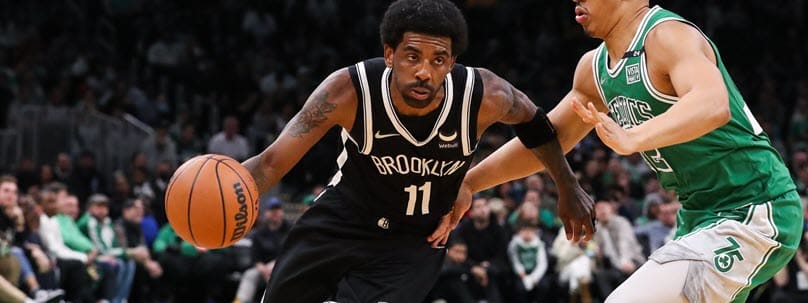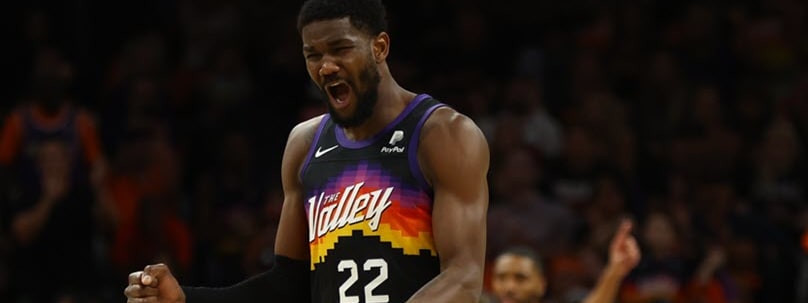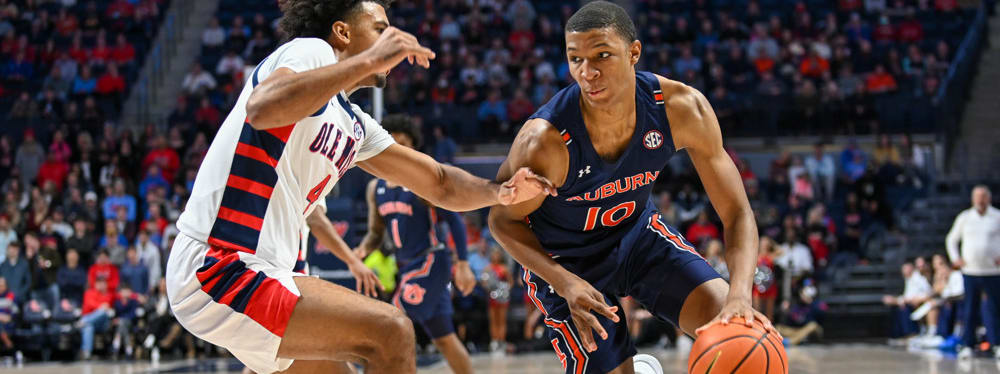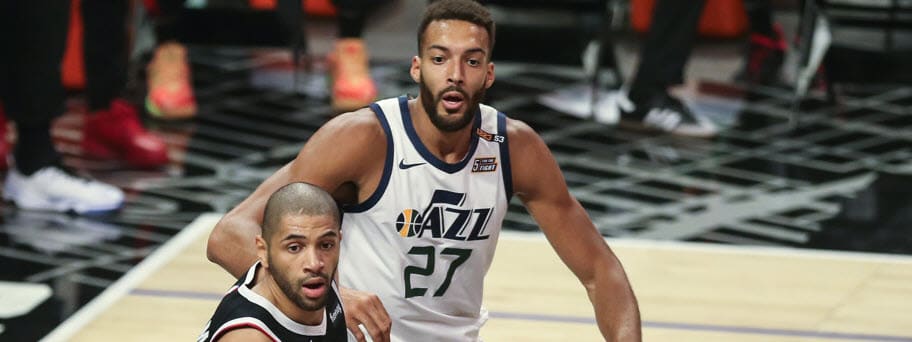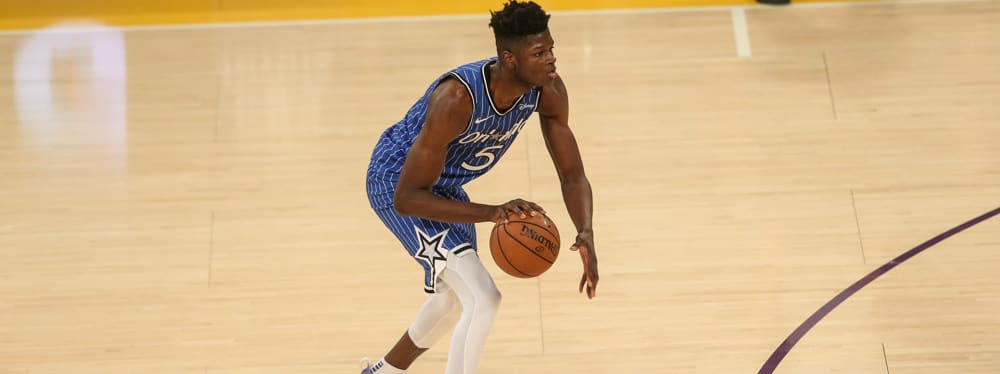Recent RotoWire Articles Featuring DeMarcus Cousins
See More
After signing a one-year contract with the Lakers, Cousins suffered a torn ACL in August, preventing him from playing in 2019-20. There were hopes he might be available for the playoffs, but the team ultimately decided to waive him. Health is becoming an extremely serious concern for Cousins, as he's appeared in just 78 regular-season games since the start of the 2017-18 campaign due to an Achilles tear, a quad tear and, most recently, the torn ACL. Ending up in Houston this season, it seems unlikely we'll ever see him reach the heights he did during his times in Sacramento. A best-case scenario would probably be similar to his 2018-19 campaign in Golden State, where he averaged 16.3 points, 8.2 rebounds, 3.6 assists, 1.5 blocks and 1.3 steals in 25.7 minutes. However, that would see him splitting time with Christian Wood, who the Rockets signed for three years and $41 million. It's possible the two share the court sometimes, but that doesn't seem ideal. Ultimately, drafting Cousins is a high-risk, high-reward endeavor, and probably only worth exploring with a late-round flier.
Cousins returned in mid-January from a torn left Achilles' tendon and went on to play 30 regular-season and eight playoff contests for the Warriors, with a torn left quadriceps tendon suffered April 15 keeping him out for 14 postseason contests. While he handled a more limited minutes load than he had before he tore his Achilles, Cousins showed occasional flashes of his prior form, which was enough for him to land a contract with the Lakers this summer. Cousins had been in line to either start at center or handle a prominent role on the second unit, but the torn ACL likely means that the big man will be sidelined for the entire 2019-20 regular season and potentially the postseason, too. Cousins' injury is not only a significant blow to the Lakers, but also his rest-of-career outlook, which had already been on the downturn due to the prior serious injury. Cousins will spend the next several months rehabbing under the supervision of the Lakers' training staff before hitting free agency again next summer, where he'll likely be forced to settle for a one-year, prove-it deal once again.
Cousins was in the midst of a dominant campaign and was one of the top Fantasy players in the league before tearing his Achilles in late January. One of the most dynamic big men in the league, Cousins averaged 25.2 points on 47.0 percent from the field, which was his highest mark since 2013-14. He also drilled a career-high 2.2 threes per tilt at 35.4 percent, and shot 74.6 percent from the charity stripe. Boogie also got his teammates involves, dishing out career-high 5.4 dimes per contest. His work on the glass also remained impressive, as he set a career-high 12.9 rebounding average. Cousins’ play wasn't just on the offensive end, either, as he racked up a combined 3.2 steals/blocks per game. Though he only appeared in 48 games, his diverse skillset allowed him to post 38 double-doubles, plus three triple-doubles. Three 40-point games, five 20-rebound games, three 10-plus assist efforts, four games with at least five blocks and three games with at least five steals were on his resume in 2017-18 as well. All of that being said, it’s not clear what kind of player Cousins will be less than one year removed from a devastating injury, as the history of players returning to full strength following an Achilles tear is incredibly slim. At the very least, his improved proficiency as a shooter should keep him in the running for several three-point attempts per game, though it’s not exactly clear how many minutes he'll garner. Ultimately, it’s a significant risk to draft Cousins in Fantasy this season, though it’s hard to argue with gambling on the four-time All-Star in a later round.
After six years in Sacramento, relations between the organization and Cousins finally soured and he was traded to the Pelicans at the trade deadline following 55 games with the Kings. Prior to the trade, Cousins had averaged 27.8 points, 10.6 rebounds, 4.8 assists, 1.3 blocks and 1.4 steals across 34.4 minutes, making him one of the more versatile multi-category Fantasy players at the center position. For the final 17 games of the season with the Pelicans, Cousins saw his scoring take a hit with an average of just 24.4 points, which was fully expected considering he joined a much more talented roster that features superstar Anthony Davis and Jrue Holiday. His assists (3.9) and blocks (1.1) also went down, but he did see a spike in his rebounds (12.4) and steals (1.5), so the move wasn't all negative in terms of his value. Going into the 2017-18 campaign, Cousins is expected to take on a similar role in the frontcourt, teaming up with Davis as one of the league's most talented frontcourts. The Pelicans signed Rajon Rondo in free agency to pair with Holiday in the backcourt, which adds another willing passer who should have no problem getting Cousins open looks on a regular basis. With Cousins continuing to improve as a three-point shooter -- boasting a career-high 36.1 percent from three-point land last season -- he's added yet another category to his Fantasy profile, while also making himself harder to guard. He should be one of the best all-around bigs in terms of his cross-category production and should be a top-5 center yet again despite his points per game potentially going down in his first full season working alongside Davis, Holiday and Rondo.
While the Kings failed to reach the playoffs for the sixth time in as many seasons as he's been in the league, Cousins turned in the best statistical production of his career in 2015-16, despite his strained relationship with former coach George Karl. The 26-year-old averaged a career-high 26.9 points per game and developed a three-point shot, going 70-for-210 (33.3%) from long range after having only attempted eight treys the season before. Cousins remained as temperamental as ever, accruing a league-leading 17 technical fouls and serving a pair of one-game suspensions along the way, but staying healthy was a bigger issue for the bruising big man, who played in only 65 games while missing contests due to Achilles, back and ankle issues. He's now sat out 10-plus games in four of the last five seasons, which has been just about the only thing that has put a damper on Cousins' otherwise outstanding fantasy production. For evidence of the dominance Cousins' is capable of providing when he's healthy and focused, look no further than his numbers from the month of January, during which he averaged 31.5 points, 12.9 rebounds, 3.1 assists, 1.6 steals, 1.3 blocks and 1.3 three-pointers per game while shooting 48 percent from the floor over 15 contests. Cousins' tendency to engage in emotional outbursts and clash with authority has often left the Kings' front office wondering if he's truly someone the team can build around, but the franchise appears committed to seeing if new coach Dave Joerger can get the most out of the enigmatic star. For his part, Cousins seems to be fully committed to building on last season's career year, as he dropped weight in the offseason for conditioning purposes and gained valuable experience in a winning culture while suiting up for the United States squad during the 2016 Summer Olympics. It might not be enough for him to turn the Kings into playoff contenders in 2016-17, but Cousins seems poised to churn out another stat-stuffing campaign regardless of how his team performs.
This past NBA season saw Cousins establish himself as one of the top centers in the NBA after playing for Team USA over the summer and earning his first NBA All-star bid. Although limited to just 59 games for Sacramento, Cousins still managed to take his game to another level in his fifth season. In 34 minutes per game, he averaged 24.1 points, 12.7 rebounds, 3.6 assists, and 1.7 blocks while shooting 78 percent from the line, all of which were career-highs. Cousins is a matchup nightmare on the offensive end, mixing his ability to bully opposing big men inside while being able to knock down jumpers as far out as 20 feet. His primary weakness remains his knack for piling up unnecessary fouls. New GM Vlade Divac has attempted to get him help in the form of Rajon Rondo and Marco Belinelli. The addition of rookie Willie Cauley-Stein should help keep Cousins out of foul trouble and allow him to be more efficient offensively, but that also likely cuts into his rebounding and block totals. Still just 25 years old, Cousins may assert himself as an All-NBA first team selection this upcoming season.
The 2013-14 season saw Cousins firmly establish himself among the league's elite frontcourt players. Coming off of a 2012-13 campaign in which he averaged 17.1 points and 9.9 rebounds, Cousins upped his all-around production, boosting his scoring more than five points per game (22.7) while averaging career-highs in rebounds (11.7) and assists (2.9). He also shot a career-best 50 percent from the field and converted nearly 70 percent of his attempts within three feet of the rim. Arguably the year's biggest All-Star snub, Cousins finished the season with the fifth-highest PER (26.1) in the league, and ranked among the top five in rebounds per game, total rebound percentage, defensive rebound percentage (first), and usage rate. Despite the vast all-around improvement, Cousins' career continues to be overshadowed by lingering character issues. It's well-known that he's among the league's most intense competitors, but he often draws criticism for allowing his emotions to spill over onto the court. Cousins ranked among the top four in personal fouls for the fourth straight season and picked up a league-high 16 technicals. Still, he hasn't let his emotions affect his production, and he figures to again be among the top fantasy forwards/centers this season. The Kings may be a few years away from contending, but after a strong summer with Team USA at the FIBA World Cup, Cousins' stock is higher than ever.
The enigmatic and supremely talented Cousins didn't hit that next gear that many pundits expected in his third season, instead taking a slight step back from his stellar sophomore campaign, but he was still able to put together a very solid campaign. Cousins finished the year with averages of 17.1 points, 9.9 rebounds and 1.4 steals in 31 minutes per game. His shooting percentages both started trending in the right direction, as Cousins posted career-best marks of 47 percent from the floor and 74 percent from the line. But the biggest question mark with Cousins remains the maturity issues that have plagued him in the past. The Kings are under new management with a new owner and coach taking over the reins. The new brass have been vocally supportive of Cousins all offseason and plan to build around the talented 23-year-old going forward. Given his erratic ways in the past, there's certainly some risk involved with Cousins, but his talent level is topnotch, and he still has the potential of developing into a truly elite big man for both the Kings and fantasy squads.
While all the question marks that have surrounded Cousins about his character and maturity throughout the years are still legit, there’s no mistaking he’s an elite-level talent after his sophomore campaign with the Kings. After an up-and-down rookie campaign, Cousins turned into a double-double machine in 2011-12, finishing the season with averages of 18.1 points, 11.0 rebounds, 1.5 steals and 1.2 blocks in under 31 minutes per game. His play only got stronger as the season went on, as he averaged 19 or more points each of the final three months of the regular season. Despite the breakout, Cousins still needs to improve his decision making, which led to a 44.8 percent shooting percentage, 2.7 turnovers and 4.0 fouls per game. With smarter play, he should see extra playing time. Talent-wise, though, it’s tough to argue with what Cousins has to offer. He has an array of low-post moves, while also being able hit outside shots or take similar sized big men off the dribble. After the firing of Paul Westphal early last season, it’s clear the Kings are committed to building around Cousins. Given his vast amount of potential, fantasy owners should consider doing the same.
The volatile big man out of Kentucky had the up-and-down rookie campaign most expected – falling in and out of favor with Kings coach Paul Westphal, but looking like a dominant post presence and future All-Star when properly motivated. Cousins finished the season with averages of 14.1 points, 8.6 rebounds, 2.5 assists, 1.1 steals and 0.8 blocks. He struggled with his efficiency across the board, though, shooting just 43.0 percent from the floor and 68.7 percent from the line while turning the ball over 3.3 times per game. Cousins’ immaturity also was evident in his 4.1 fouls per game as his mistakes on the defensive end of the court often led to foul trouble. Despite these obvious concerns, it’s hard not to get excited about Cousins’ future. He has an array of post moves that will enable him to be one of the better scorers on the block once he matures and becomes more efficient. While the Kings have other big men like J.J. Hickson and Jason Thompson on their roster, Cousins remains the only post player on the team with the potential to be a franchise-type player. This could be the last time he comes at a discount on draft day.
Thanks to character and work ethic concerns, Cousins fell to No. 5 in this year's draft, where Sacramento happily snatched him up. He dominated at times during Summer League play, averaging 16.2 points and 10.8 rebounds, flashing an impressive midrange game combined with good strength down low. However, he faded badly, shooting just 20 percent (9-for-45) from the floor over the final three games in Las Vegas, which highlights the concerns about his conditioning. He also seemed aloof and was reluctant to take coaching advice at times – so red flags remain. The hope is Cousins will be motivated to prove himself in the NBA after hearing so much criticism and falling to the fifth pick. With such a young roster, the Kings will certainly give him all the playing time he can handle right from the start. Cousins has the physical tools to be a double-double machine, but there's hardly a guarantee he lives up to his vast potential.
